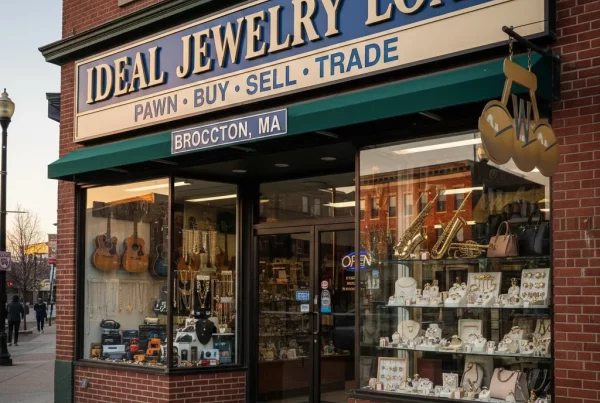Ever driven past a pawn shop and wondered what mysteries lie within? These unassuming storefronts are teeming with history, hidden treasures, and serve as a lifeline for many in need of quick cash. Whether you’re curious about the backstory of that vintage watch in the window or contemplating using a pawn shop yourself, understanding how these establishments operate can be both fascinating and incredibly useful. Let’s peel back the curtain and explore the world of American pawn shops.

Introduction
Pawn shops have long been a fascinating and essential part of American society, providing quick financial solutions and a marketplace for second-hand treasures. Understanding how American pawn shops work is important to appreciate their role in local communities and personal finance. This guide will explore their history, functions, and significance.
What Is a Pawn Shop?
At its core, a pawn shop is a business where individuals secure short-term loans using personal belongings as collateral. Items such as jewelry, electronics, tools, or collectibles are assessed for their value, and a loan is offered based on this appraisal. If the borrower repays the loan within the agreed timeframe, the item is returned. Otherwise, the pawn shop may sell the item to recover the loan amount.
History of Pawn Shops
The concept of pawn shops dates back thousands of years to ancient China and Greece. Over time, these businesses evolved significantly. In America, pawn shops became especially vital during the Great Depression, providing much-needed financial relief to many families. Today, they remain an important financial resource.
How American Pawn Shops Work
The process of how American pawn shops work is straightforward:
A customer brings in an item of value for evaluation.
The pawnbroker assesses the item’s worth.
A loan amount is offered based on this valuation.
Interest rates and fees apply, often higher than traditional loans due to the short-term nature.
Common Items Pawned
Pawn shops accept various items, including:
Electronics: phones, laptops, gaming consoles
Jewelry: gold, silver, gemstones
Collectibles: coins, rare books, memorabilia
Tools: power tools, machinery
Benefits of Using Pawn Shops
Using pawn shops has several advantages:
Quick cash without a lengthy approval process
No credit checks required
Flexible, negotiable repayment terms
Risks and Considerations
However, borrowers should be aware of:
High-interest rates compared to traditional loans
The risk of losing the item if the loan is not repaid
Loan amounts are limited by the item’s value
Regulations and Legal Aspects
Pawn shops operate under federal and state laws, requiring licenses and consumer protections. These regulations ensure fair and transparent practices to protect both borrowers and lenders.
How to Choose a Reputable Pawn Shop
Choosing a trustworthy pawn shop is essential. Consider:
Researching online reviews and getting recommendations
Verifying licensing and certifications
Ensuring clear communication of terms and fees
The Role of Pawn Shops in the Economy
Pawn shops contribute to local economies by providing financial assistance, creating jobs, and generating tax revenue.
Modern Pawn Shops
Today, many pawn shops have embraced technology, offering online services and digital transactions, making it easier to pawn items and manage repayments.
Alternatives to Pawn Shops
If pawn shops aren’t suitable, consider:
Personal loans from banks or credit unions
Payday loans (though they often have very high-interest rates)
Selling items outright through second-hand stores or online marketplaces
Real-Life Stories and Testimonials
Many people have relied on pawn shops during emergencies or to fund ventures, showcasing their positive impact.
FAQs About Pawn Shops
How long to repay a pawn loan? Usually 30 to 90 days, depending on the state and shop.
What if I can’t repay? The pawn shop will sell the item to recover the loan.
Can I negotiate interest rates? Some shops allow this, especially for repeat customers.
Are pawn shops safe? Licensed shops follow strict security measures.
Do pawn shops buy stolen goods? No; they verify ownership and report suspicious items.
Conclusion
Understanding how American pawn shops work helps you make informed decisions when seeking quick cash loans. While risks exist, the benefits often outweigh them, especially when choosing a reputable pawn shop.
Business Opportunity Alert!
For entrepreneurs, pawn shops offer a lucrative business opportunity. With a focus on excellent customer service and digital innovation, such as online appraisals and mobile pawn services, this industry is ripe for growth.




